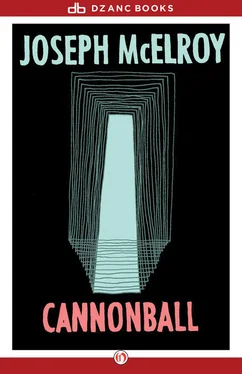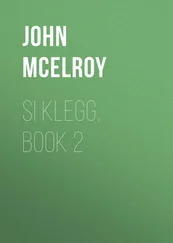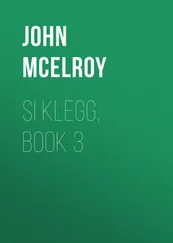Joseph McElroy - Cannonball
Здесь есть возможность читать онлайн «Joseph McElroy - Cannonball» весь текст электронной книги совершенно бесплатно (целиком полную версию без сокращений). В некоторых случаях можно слушать аудио, скачать через торрент в формате fb2 и присутствует краткое содержание. Год выпуска: 2013, Издательство: Dzanc Books, Жанр: Современная проза, на английском языке. Описание произведения, (предисловие) а так же отзывы посетителей доступны на портале библиотеки ЛибКат.
- Название:Cannonball
- Автор:
- Издательство:Dzanc Books
- Жанр:
- Год:2013
- ISBN:нет данных
- Рейтинг книги:5 / 5. Голосов: 1
-
Избранное:Добавить в избранное
- Отзывы:
-
Ваша оценка:
- 100
- 1
- 2
- 3
- 4
- 5
Cannonball: краткое содержание, описание и аннотация
Предлагаем к чтению аннотацию, описание, краткое содержание или предисловие (зависит от того, что написал сам автор книги «Cannonball»). Если вы не нашли необходимую информацию о книге — напишите в комментариях, мы постараемся отыскать её.
continues in McElroy's tradition of intricately woven story lines and extreme care regarding the placement of each and every word. A novel where the sentences matter as much as the overall story.
Cannonball — читать онлайн бесплатно полную книгу (весь текст) целиком
Ниже представлен текст книги, разбитый по страницам. Система сохранения места последней прочитанной страницы, позволяет с удобством читать онлайн бесплатно книгу «Cannonball», без необходимости каждый раз заново искать на чём Вы остановились. Поставьте закладку, и сможете в любой момент перейти на страницу, на которой закончили чтение.
Интервал:
Закладка:
Talked to Marine Lab, I said. About? said Dad A job. You what? said Dad. Phoned U. Hawaii. Pre-Business. You call that a—?
I said Pre , Dad.
And Pre-Med advice, I added, from a personal trainer who got a callback interview with the Chargers. With your Chem — get real. Talked to the Coast Guard, Dad. Coast Guard! (The retired bosun’s mate down at the boatyard who did not vote had taken me out in his retired USCG 38-foot picket boat, and hanging next to the binnacle were his old running spikes that had been bronzed by his high school in memory of a hard-to-believe-if-you-looked-at-him-now State Championship 880, worth a snapshot.) There’s a war on, my father said. There is? said my sister.
“Elizabeth…,” my father said. He used her given name (with almost a weird and distant respect) though she had dropped it years ago even at her age. In favor, first, of “E” and later of “Em,” or “M” (for the “m” in “family,” she said), though E-Z, I heard occasionally during the summer like a toll pass or, with my first initial, some married name of ours, was the Z a nod back to her given name, and had E to begin with just set her apart from my girlfriend Liz, though it began before Liz’s time.
Sometimes I gathered all this together and would think ahead, though it was already happening. “What are you wearing, pyjamas at this hour?” Dad said, but she was at work on her homework notebook. “Pyjama bottoms,” I said. We laughed, E and I.
“The dog’s tail, you gotta cut it off in one chop they say,” my father said, hanging in there on the war and my occupational future, but family-mad. “They’ll have a mission statement,” said my sister. “I was saying,” my father continued as if from what had just been said, “if you could just finish a sentence, forget an idea.”
“Well, they have to take this guy out,” I said, meaning the war. “Right. Nothing fancy about…” my father began but oddly didn’t finish. “That’s what I understand, keep things simple,” I said but at a slant probably. “You’re so—“my father began as the front door shook the house—“You don’t a pol ogize,” he said, I believe of America. Business as usual about everything, I think I said. “Business as usual,” my mother called out, recyclable paper bags crackling with forethought, fresh home from the Presidio Farmer’s and her particular friend, the butcher, it came to me and to my sister catching my eye. My father muttered something. They’ll find it somewhere, I said. Find what? my father said. Their mission statement, I said. Where? he said curiously.
Division of labor, I said. Someone had said — I stopped— Some one? my dad said — that the value of a fixed calling gave us a warrant for it. For what? The division of labor, I laughed. Dad more than didn’t like the conversation. My job will be…(I thought a moment). You two , he said.
“We’ll get it in writing,” I said. “A mission statement,” my sister said. “Setting out our way of life,” I said. “You people are never wrong but you don’t have a plan and you never will have,” my father said. “You people have a privileged life, time to give something back. In writing did you say?” I humored my dad, I said I didn’t want to be doing work with no point to it, Mrs. Browning had figured that out, though she didn’t know where I’d borrowed the guy endlessly pushing the stone from who knew the secrets of the gods. “Enough of that old stuff,” my father said. “You should know,” I said. My sister, on my side, said, “She thought Zach made it up, veins in the earth, and she didn’t like that.” But we couldn’t get a laugh out of Dad, who had never perhaps had the full experience of working in the dark. He was less a loose gun than…a loaded gun (E said). And where did they say that about cutting off the dog’s tail? she wanted to know. “Chile, of course,” a place my dad wanted to visit. Dad had been known to go camping alone when a mood came over him. My sister told her librarian friend things I said — she always answered me and it was she really who said the things. What did he mean You don’t apologize —you mean me or…? “You just don’t,” said my sister. That summer she was “EZ,” incorporating my first letter. (She played softball and had a great free uninhibited left-handed swing.) When did she seem to change her name? You didn’t know when exactly it would happen. It wasn’t advertised.
Time twisting, braiding, stumbling, for me to see my way out — time to leave. I put off going to see Wick, the teacher I trusted. My home had been escaping me. About this I didn’t tell my sister; or didn’t need to, it was so old and impenetrably understood, leaning toward her or she toward me, hands, no hands, who could tell the difference? “What you get might always seem less than you should but it’s fate,” she said of me, the stony gray light of her eyes warming mine but to see more than just the future.
Which I’d espied just yesterday upon leaving The Inventor’s: the truck, clean of graffiti, parked up by the bungalow. Most of all, for it was she in her hat and skimpy sunsuit, the old woman picking weed-like greens by the porch whom my sister would have known from the pool.
I hoped for success for my father. What exactly was it about life that was hell for him? He was serious as a person. What a coach he was, hoping to be tapped for Olympic trials. With his unique method yet willing to use whatever came to hand. He knew. And at a glance he could tell watching you in the water. “Wait, wait,” he shouted, your elbow too high, arm extended up, shoulder over too far, too high, stroke, reach, turn, and fingers ( that’s right) more like a close grid than a diver’s sealed hand. Explain, if you could be bothered, what you thought you had been doing, and he’s with you—“That’s correct,” or, “No, that’s incorrect.” Another remark heard more than once after I gave up diving was, You don’t know how to compete . Did he think it was true? It wasn’t as if I was against the man, I told my sister. Just be prepared, she said— Semper paratus . He was flying far and near. Why? I read where the President himself had intercepted a letter authenticated as written by the insurgent Manadel Marouf-al-Saddam Booshawa prophesying that America would be made to run, as in Vietnam, when it was the big picture this terrorist feared. Well, I wasn’t the President yet.
It was true enough of our seriously award-winning city that we had everything here, Liz thought. Why leave? Liz wasn’t interested in travel; an hour’s trip up to Oceanside on the Coaster to fish off the public pier with her aunt who was married to a veteran who worked at a big kind of men’s or bachelor’s club just behind the beach, and back by seven the same day, was it. Why go to war? Liz had taken Umo for Hawaiian. My sister said he wasn’t old enough, which contained some truth: they had been there so long before they became a state. Liz thought Umo’s accent Hawaiian the once they met. She was way off. Liz with a much older Navy pen pal in Ewa who conducted tours of a Pearl Harbor battleship. It was not she who brought Umo up, or when I did she had little to say but liked something about him. It was his body. He was a traveler, she said of his trips back and forth across the border.
“Travel!” I exploded — Umo’d been halfway around the world, and it was pretty much on his own. It probably was, Liz said, he’s independent. “A wanderer,” I said, and felt it was a word, a better one, and, as I sometimes would backstroking, I had a thought that the one I really loved was my sister, and lap after lap, my dad was, what? — pretty distant, and Umo, fat, but not mainly fat, but huge, but a kid, which expanded my narrow world of family and all that, though then I thought, Was he really a wanderer?
Читать дальшеИнтервал:
Закладка:
Похожие книги на «Cannonball»
Представляем Вашему вниманию похожие книги на «Cannonball» списком для выбора. Мы отобрали схожую по названию и смыслу литературу в надежде предоставить читателям больше вариантов отыскать новые, интересные, ещё непрочитанные произведения.
Обсуждение, отзывы о книге «Cannonball» и просто собственные мнения читателей. Оставьте ваши комментарии, напишите, что Вы думаете о произведении, его смысле или главных героях. Укажите что конкретно понравилось, а что нет, и почему Вы так считаете.












